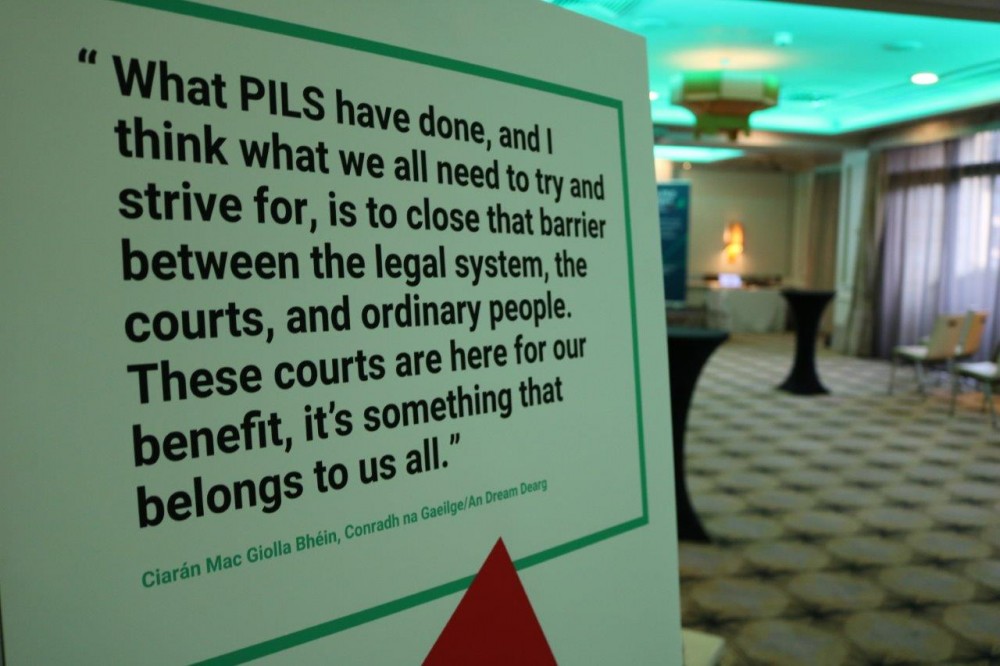Public Interest Litigation and the Power of Unexpected Alliances
In a year when long-acknowledged inequalities were solidified and new challenges emerged, there are still many pockets of hope to be found.
In a year when long-acknowledged inequalities were solidified and new challenges emerged, it is understandable to feel exhausted as the end of 2020 approaches. But as the year where physical barriers had to be placed between us comes to a close, there are still many pockets of hope to be found.
When the Public Interest Litigation Support (PILS) Project was first set up in 2009, COVID-19 might not have been causing families problems, but there were other viruses hurting our society. Structural inequality, unlawful decision-making and human rights abuses existed then – and are still familiar obstacles today.
The exhaustion faced by frontline workers around the world underlines the ongoing need for solidarity. No group can – or should be asked to – address the COVID challenge alone. Which is why it is crucial for any solution to be one based on collaboration, participation and cooperation.
This includes forging partnerships between (sometimes) unexpected allies.
In the PILS Project’s world, this involves introducing human rights activists and the legal profession.
Equality before the law is a widely accepted principle. However, I’m always reminded of that quote (usually attributed to a nineteenth-century Irish judge) about justice being open to all – just like the Ritz Hotel is open to all. In reality, we know that there are many reasons why cases may never make it into a courtroom, costs being a major factor. As our recent Everyone Equal animation explains, PILS was set up to address these challenges head-on.
Over the past eleven years, our project has supported challenges on everything from health and housing to integrated education and Brexit. What unites all of these court cases is that they are great examples of public interest litigation in action. By focusing on the wider impact of law beyond one single individual’s situation, strategic public interest cases help to protect the rights of disadvantaged communities.
That’s the theory. How we achieve this in practice is by creating a series of powerful alliances – connecting our network of member organisations (the NGO or solicitor firm who discovered the public interest issue through their front-line work) with legal professionals who can add their expertise, free of charge.
The potential for these NGO-legal partnerships to address unmet legal need was the topic of conversation during a webinar that PILS hosted in November 2020, bringing two of our NGO members – Friends of the Earth and the Children’s Law Centre – and pro bono lawyers together to share their own personal stories of cooperation.
By combining the lived experiences of people across Northern Ireland with NGO knowledge, free (pro bono) legal assistance and PILS’ legal and financial support services, we can create an impact that is collectively much greater than the sum of its parts. PILS’ support services allow cases, that would otherwise have fallen at the obstacles of cost or capacity, to make it into the courtroom.
A recent example of this was the high-profile judicial review on the social security rules that currently apply where the person claiming a benefit has been diagnosed with a terminal illness.
Lorraine Cox was diagnosed with motor neurone disease in 2017 at the age of 37 and had initially been turned down for an enhanced PIP payment because of the six-month life expectancy rule. (Because she could not provide medical evidence that she could be ‘reasonably expected’ to die within six months of her diagnosis, Lorraine was required to search for work and undergo eligibility assessment for PIP and Universal Credit.)
Represented in the High Court by the legal team from the Law Centre NI, Lorraine successfully challenged the existing regulations. PILS were proud to provide both legal and financial support to the Law Centre NI to keep this case going. The case has since prompted a significant award in damages for Lorraine, but also reinvigorated a campaign calling on the Executive to remove the rule entirely.
The benefit doesn’t end on the day that a judgment is handed down by a judge either – although that is a major achievement and a high point in itself. The encouraging thing about public interest cases is that their decisions can continue to make people’s lives easier weeks, months or even years after the media attention dies down.
We saw this recently when a 2018 judgment was relied upon by Anthony Flynn and his partner who had both been charged £50 in additional fees by their former estate agent. When Shelter NI recently contacted the agents on their behalf, citing the Loughran ‘letting fees’ decision, they were offered refunds. (PILS had provided NGO member Housing Rights with financial support in the Loughran case, through our Project’s Litigation Fund.)
Public interest litigation would be a lonely, tiring place – if you had to undertake the work alone.
That is why – in the wake of COVID - collaboration is so important to making sustainable, lasting change across Northern Ireland. By working together, our successes are shared and multiplied. When we collaborate, we make each other even bigger.
We must continue to call out injustice and gather together teams of people who can help right those wrongs – even if some of those alliances seem unlikely at first glance.
For more information on The PILS Project and how they work with NGOs and the legal profession to create change, follow them on Twitter @pilsni or visit www.pilsni.org